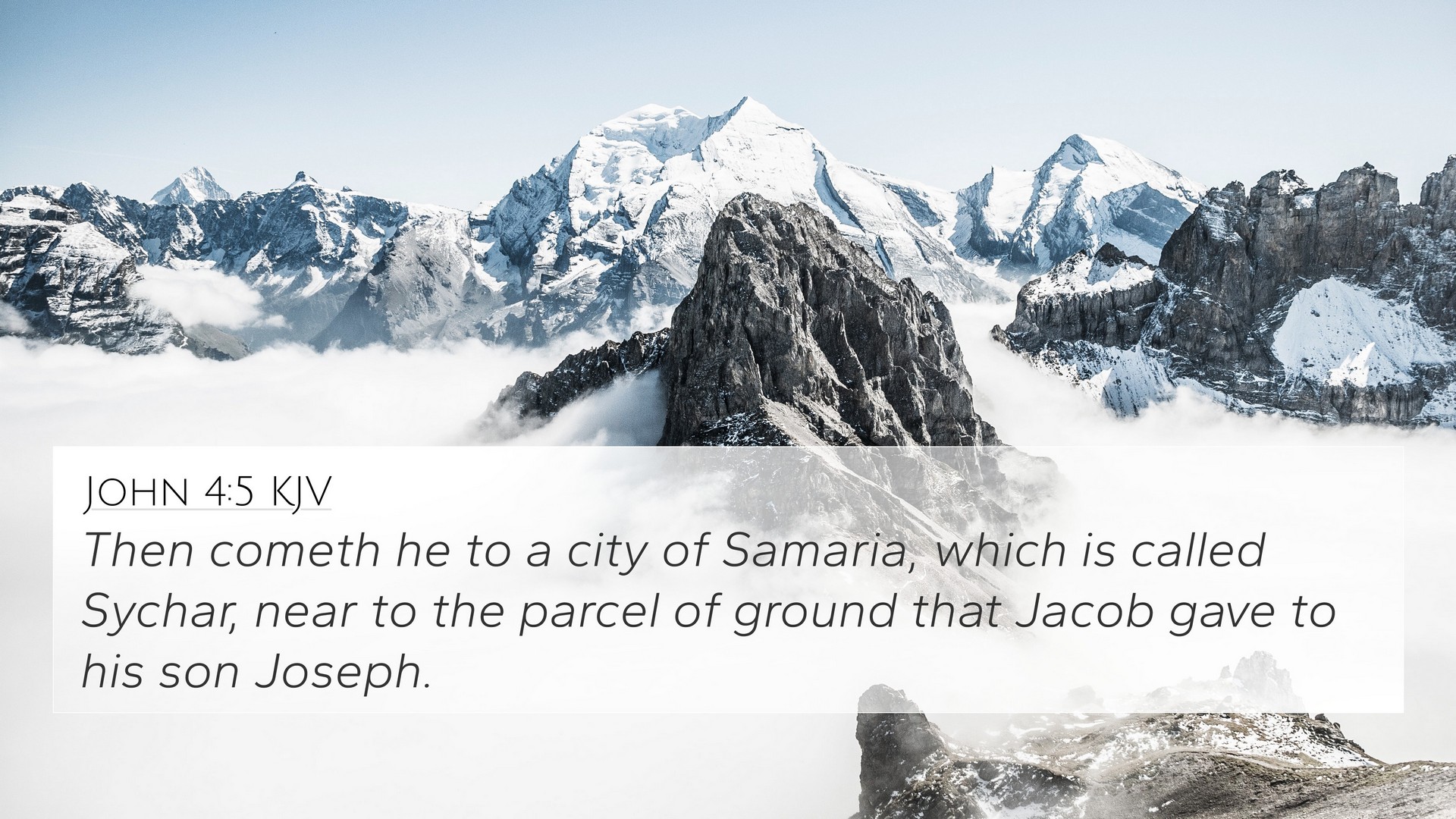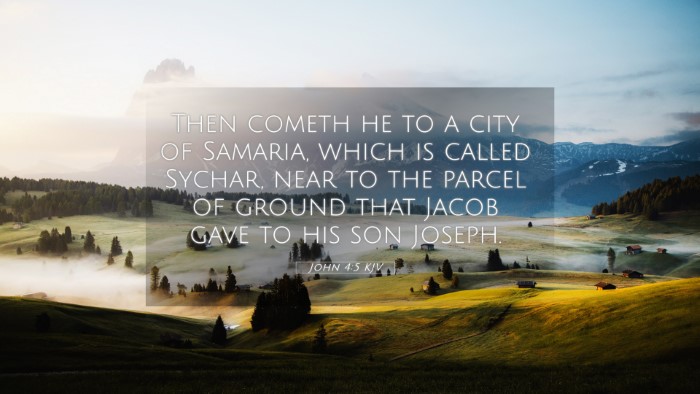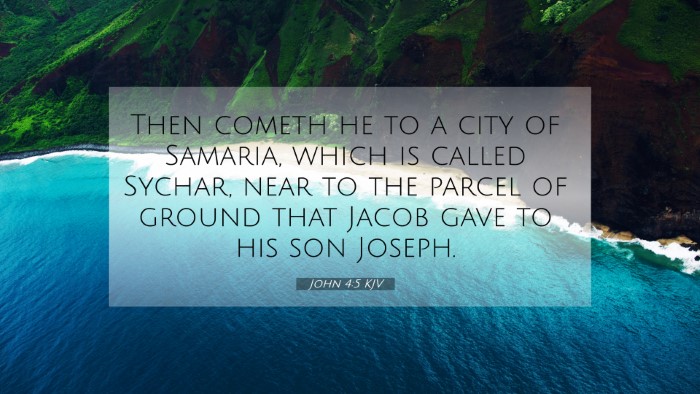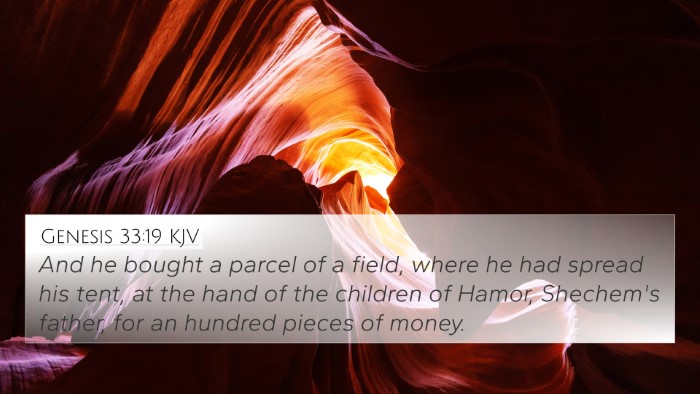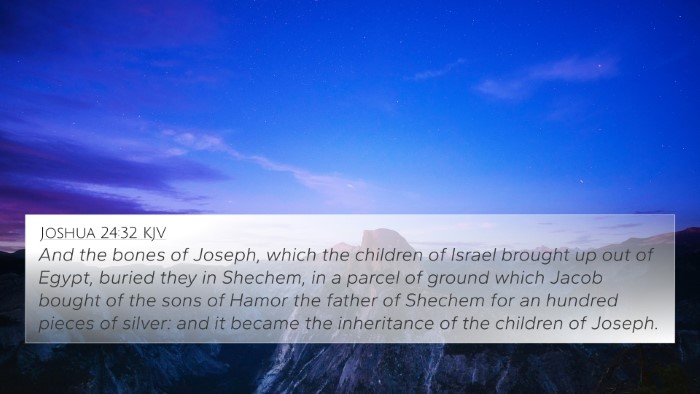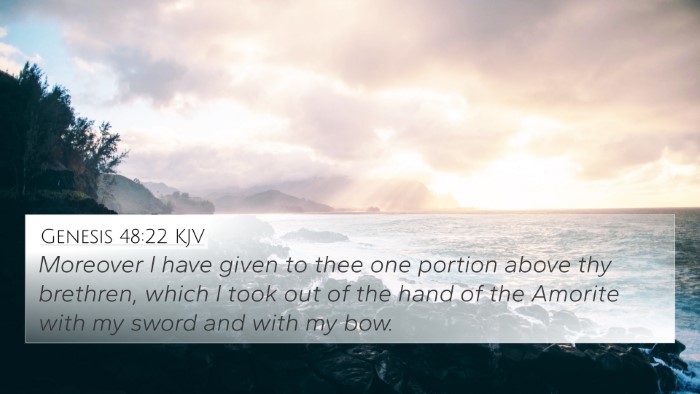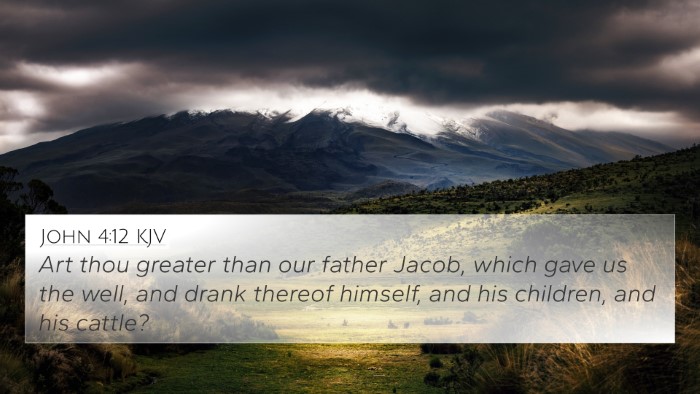Understanding John 4:5
In this passage, we find an important moment in the life of Jesus as He travels through Samaria, stopping at Jacob's well. John 4:5 reads:
"Then cometh he to a city of Samaria, which is called Sychar, near to the parcel of ground that Jacob gave to his son Joseph."
Summary of Insights from Public Domain Commentaries
The following insights have been synthesized from the commentaries of Matthew Henry, Albert Barnes, and Adam Clarke regarding John 4:5:
-
Historical Context:
John's Gospel often emphasizes the significance of locations and their historical roots. The city of Sychar is steeped in biblical history as it lies near the plot of land given to Joseph by Jacob, symbolizing the continuity of God's promise through generations.
-
Jesus' Journey:
This verse illustrates Jesus' deliberate choice to travel through Samaria, a region often avoided by Jews due to deep-seated animosities with the Samaritans. This sets the stage for His teaching of love and acceptance beyond cultural boundaries.
-
Symbolism of the Well:
The well itself is not only a source of physical sustenance but also serves as a metaphor for spiritual nourishment, hinting at the deeper conversation that will follow with the Samaritan woman.
-
Theological Implications:
This encounter foreshadows the global mission of the Gospel, which breaks societal barriers and embraces all, represented symbolically through the Samaritans, who were traditionally looked down upon by the Jews.
Related Bible Cross-References
Several Bible verses relate contextually and thematically to John 4:5, providing deeper insight into its meaning:
- Genesis 33:19 - This verse provides the background for the land that Jacob gave to Joseph.
- John 4:9 - Further details the societal barriers between Jews and Samaritans.
- Luke 10:33-34 - Illustrates the principle of loving one's neighbor, which is exemplified in Jesus' actions towards the Samaritan woman.
- Acts 1:8 - Highlights the call to spread the Gospel to all nations, including Samaria.
- Romans 1:16 - Affirms the Gospel's universal nature, not limited to the Jews but extended to the Gentiles.
- Matthew 28:19-20 - The Great Commission encourages the preaching of the Gospel across societal boundaries.
- John 3:16 - Emphasizes God's love for the world, which includes every ethnic and cultural group.
Thematic Connections Between Bible Verses
Connections between John 4:5 and other scriptures highlight pivotal themes within the Bible:
- Inclusivity in Salvation: Galatians 3:28 teaches that in Christ, there are no divisions based on ethnicity or social status.
- Historical Significance: John 4:12 further discusses the heritage of Jacob and its importance in the narrative.
- Thirst for Living Water: Parallel themes of spiritual thirst can be found in Isaiah 55:1 which invites the thirsty to come and drink.
Cross-Referencing Biblical Texts
Understanding John 4:5 through cross-referencing enhances our interpretation. Here are methods to improve your study:
- Utilize a Bible concordance to find words or themes such as “Samaritan” or “well” to discover related verses.
- Engage in cross-reference Bible study techniques by comparing narratives, such as the different Gospel accounts of the same event, which may illuminate additional layers of meaning.
- Incorporate Bible verse parallels to examine the universal messages of love and acceptance across differing texts.
Conclusion
John 4:5 serves as a launching point for significant theological discussions about the nature of Jesus' mission and the character of God as inclusive. Through careful study of related verses, one can uncover the rich tapestry of biblical history, teachings, and themes that connect and reinforce the message of hope and salvation for all humanity.
